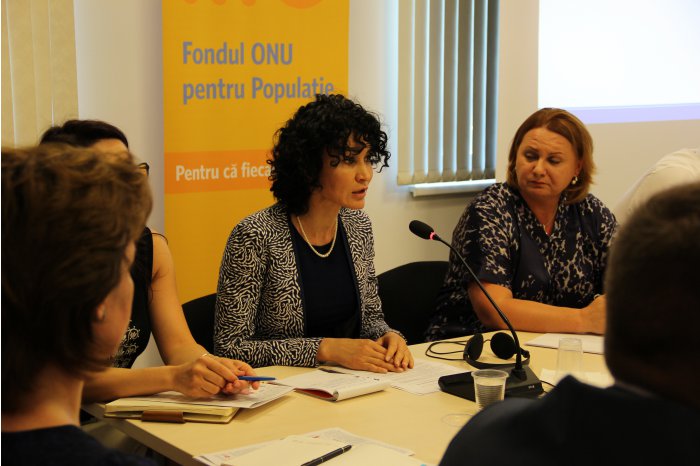Moldova faces demographic crisis
15:56 | 11.07.2016 Category: Social
Chisinau, 11 July /MOLDPRES/ - The economic decline, which has accompanied the fundamental transformations in Moldova during two decades, seriously affected the residents’ family life and the demographic potential. This is one of the strongest factors, which triggered a decrease in the birth rate over the last years.
This is the conclusion drawn by authors of the Demographic Barometer on the impact of economic crises on Moldova’s residents. The survey was launched by the Demographic Researches Centre in Chisinau today, in partnership with the United Nations Population Fund (UNFPA) in Moldova, on the occasion of the World Population Day.
According to the survey, Moldova is one of the youngest countries of Europe. About 25 of the population represent young people; therefore, economic crises affect them directly. Unemployment among young people is thrice higher (7.12 per cent) against the one among adults (2.95 per cent).
Data shows that another impact of economic crises from 1994-2014 was a 44-per cent rise in the death rate among men and 30 per cent among women. One of the main solutions to reduce the death rate in Moldova is to ensure access of young women, teen boys and girls to qualitative medical services, including services of sexual and reproductive health, as well as to the promotion of a sound lifestyle.
Referring to the findings of the Barometer, the director of the Demographic Researches Centre, Olga Gagauz, stressed that the economic challenges and uncertainties on the labour market from 1994-2014 had represented one of the factors to diminish the will of families and women to have children, especially among young families.
At the same time, the financial and economic crises led to an increase in the migration rate, especially among young people. “The number of Moldovans emigrating for a period longer than 12 months varies between 45,000 and 50,000 annually, most of them being young people,” a co-author of the survey, Tatiana Tabac, said. According to Tabac, the prevention of illegal migration will help young women avoid useless risks, and thus they will be able to fulfill their potential in Moldova.
For her part, the UNFPS representative in Moldova, Rita Columbia, said the economic crises had a direct impact on the dynamic of the population in Moldova. UNFPA’s data shows that teen girls from all over the world are facing more serious and more challenges than boys. “Investments in health, including the sexual and reproductive health, young people’s education will help them fulfill their rights, thus contributing to growing the country’s economy,” Rita Columbia said.
Attending the event, Labour, Social Protection and Family Minister Stela Grigoras said the lasting development and the country’s well-being depended on the human capital. “Therefore, the ministry’s priority is to improve the indexes of demographic security of Moldova,” Grigoras added.
The World Population Day, established by the United Nations in 1989, and yearly marked on 11 July, is set to draw attention to global problems of the population in a world where over seven billion people live.
(Reporter N. Roibu, editor A. Raileanu)

